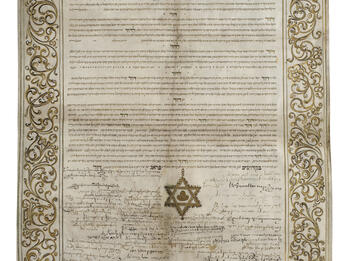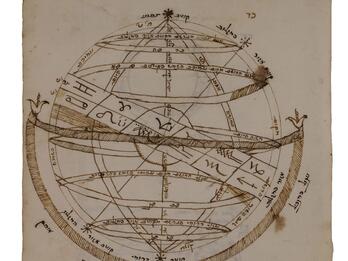Khwājah Bukhārā’īā
The name Khwājah Bukhārā’īā means “Bukharan master.” This, together with the Judeo-Persian dialect used in the poet’s only known composition, a verse retelling of the book of Daniel with numerous elaborations, indicates that the poet hailed from Bukhara. However, no further details are known about him. His book of Daniel, which numbers approximately 2,200 couplets divided across eighty-eight chapters, was completed in 1606. It demonstrates that the poet was a scholar of great erudition, well acquainted with the Torah, commentaries, midrashim, and apocryphal literature, as well as Iranian Jewish poetry. Indeed, he drew on many sources, also introducing his own creative additions (such as the dialogue between Daniel and the lions), in elaborating on the biblical narrative. Likewise, he was clearly familiar with classical Persian poetry. In particular, the pessimistic outlook of Sufi poetry is reflected in this work, and Iranian epic depictions influenced the vivid portrayals of battlefield scenes. The poet’s Jewish faith is also evident in the repeated expressions of the hope for redemption.



